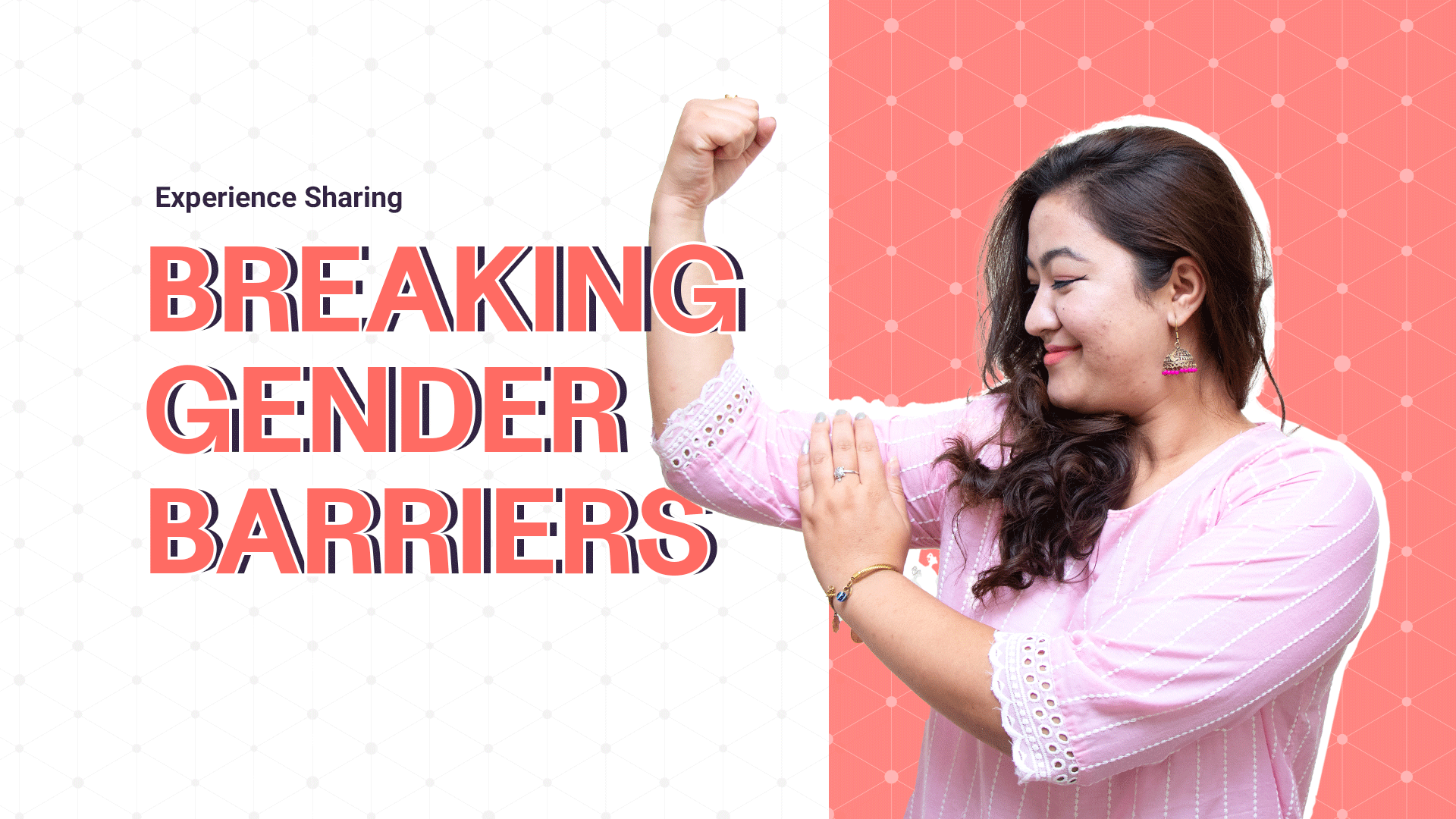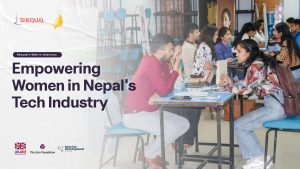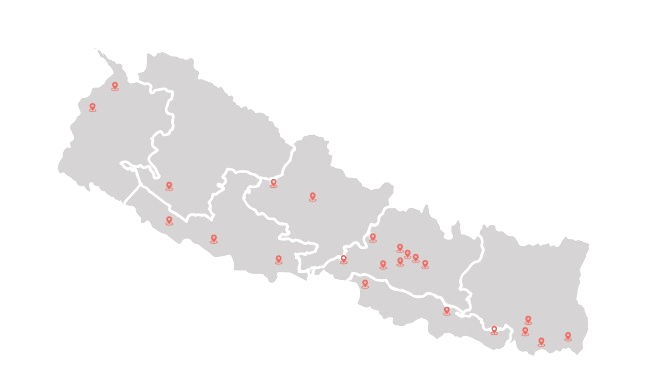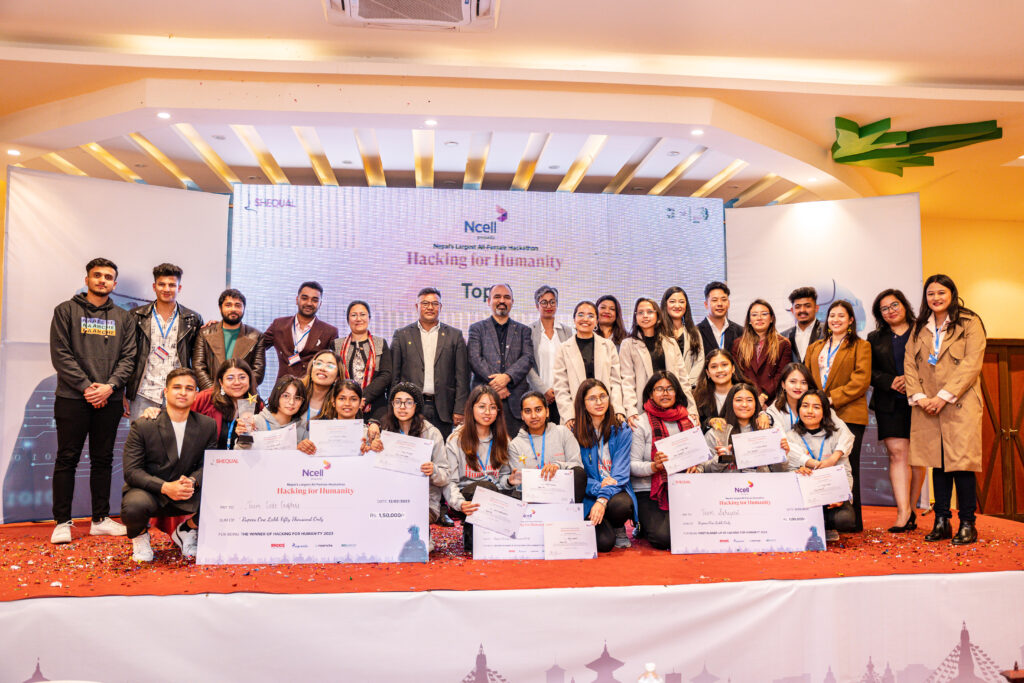In the fabric of our experiences, subtle biases weave a narrative that often goes unnoticed until challenged.
Allow me to share a personal story that has shaped my perspective on gender roles from a young age. During my school days, I was an active student who eagerly participated in various extracurricular activities. I lived in the excitement of competitions, always seeking new challenges. However, as I look back on those moments, I now realize something that went unnoticed at the time—the striking absence of male participants in the dance competitions and the glaring lack of female participants in the football matches.
Growing up, I didn’t have a single toy car. All I had was a Barbie set, and Bhadakuti. I wasn’t much exposed to sports, or video games- through my family, friends, or school.
This had me wondering, why were certain activities considered only for boys or girls, from a very young age? These simple examples show how stereotypical gender roles shape our choices and lives, often without us fully realizing their impact.
As the years passed, I pursued a bachelor’s degree in social work. On my very first day of college, I couldn’t help but notice that out of the 44 students in my class, only 9 were male. This sparked numerous discussions among me and my friends, questioning the reasons behind the disproportionate distribution of male and female students in different subjects. Why were there more female students in fields like social work and environmental science, while more male students chose mechanical engineering and artificial intelligence? Was it solely due to personal interests, or did societal pressures play a role in guiding gender-specific subject choices?
I think we all have seen such situation at certain point of our life, and we kind of have an answer to these questions. I too did. But my questions were answered to some extent by an incident that took place at the Nepal’s Largest All-Female Hackathon: Hacking for Humanity 2023.
While conducting pre-events at more than 30 IT/Engineering colleges, I had the opportunity to interact with many college faculties and students and hear their perspectives. During this process, in one of the colleges, the Head of Department there said, “All our top 5 students are females in terms of academics and intelligence. However, when it comes to competing in a competition like Hackathon, they all step back.” When I asked for the reason behind their hesitation, it became evident that the “society” was the major hindrance. Parents would not allow the girls to participate because the majority of participants would be boys, and staying overnight for a competition was not considered an option. This made me contemplate how females are discouraged from an early age- firstly by limiting the exposures to toys, or resources, and even if they pass that barrier, through societal norms.
So, at Shequal, our goal has been to create a safer space for women to compete and handle all aspects of the event independently, whether it was coding, research, documentation, or presenting. This groundbreaking event brought together female students from various IT Engineering colleges across many provinces of Nepal, leaving a profound and inspiring impact.
It was an eye-opening experience to witness the enthusiasm and determination of these female IT and Engineering students. Despite the disproportionate ratio of male to female students in these fields, the young women showcased their readiness to seize the opportunity they had long been denied. More than 1,000 female students were reached through these workshops, resulting in over 80 teams registering to participate in the hackathon.
The quality and creativity of the ideas presented by these fresh minds were simply awesome. The female participants brought forth innovative concepts that challenged existing norms and pushed the boundaries of what is possible. So, we do see positive changes in our society, and it is very encouraging. The narratives surrounding career choices are shifting, emphasizing individual ability and capacity over gender stereotypes. The notion that one must belong to a specific field to make a meaningful contribution is being changed.
However, it is essential to acknowledge that gender balance is a two-way street. Just as all females deserve to be heard and thrive in the field of IT and Engineering, it is equally important to create space for all males to contribute
their unique perspectives and expertise in domains related to liberal arts and other multidisciplinary subjects.
It is with great pride that we recognize the impact of these multidisciplinary collaborations. Every small or significant difference made through such endeavors creates a ripple effect, ultimately shaping a better future. As we continue to break down barriers and encourage diversity and inclusivity, we inspire a new generation of students to pursue their passions fearlessly, knowing that their ideas and voices hold immense value.
Let us celebrate the achievements women can make in the ICT and development sector to empower Nepal. Together, we can drive innovation, challenge stereotypes, and build a world where talent and capability triumph over gender based biases.
As we celebrate the triumphs of women in all disciplines, let’s acknowledge the transformative impact of the All-Female Hackathon. Empowering women in technology is not just a one-way journey; it’s about fostering collaboration where diverse voices, irrespective of gender, shape a future of limitless possibilities. Together, we challenge stereotypes, drive innovation, and build a world where talent prevails over bias. With this in Nepal’s Largest All Female Hackathon 2024, I encourage all females and individuals who identify themselves as females to come out of their comfort zone and create an idea to make Nepal Empowered. Welcome to Hacking for Empowered Nepal.
Coming from a non-tech background, I feel extremely privileged to be working and creating impact here, among the top contributors in this field. I salute the female pioneers and the bearers of the torch, and I commit to creating a better space where women can flourish and increase their impact in this area.







